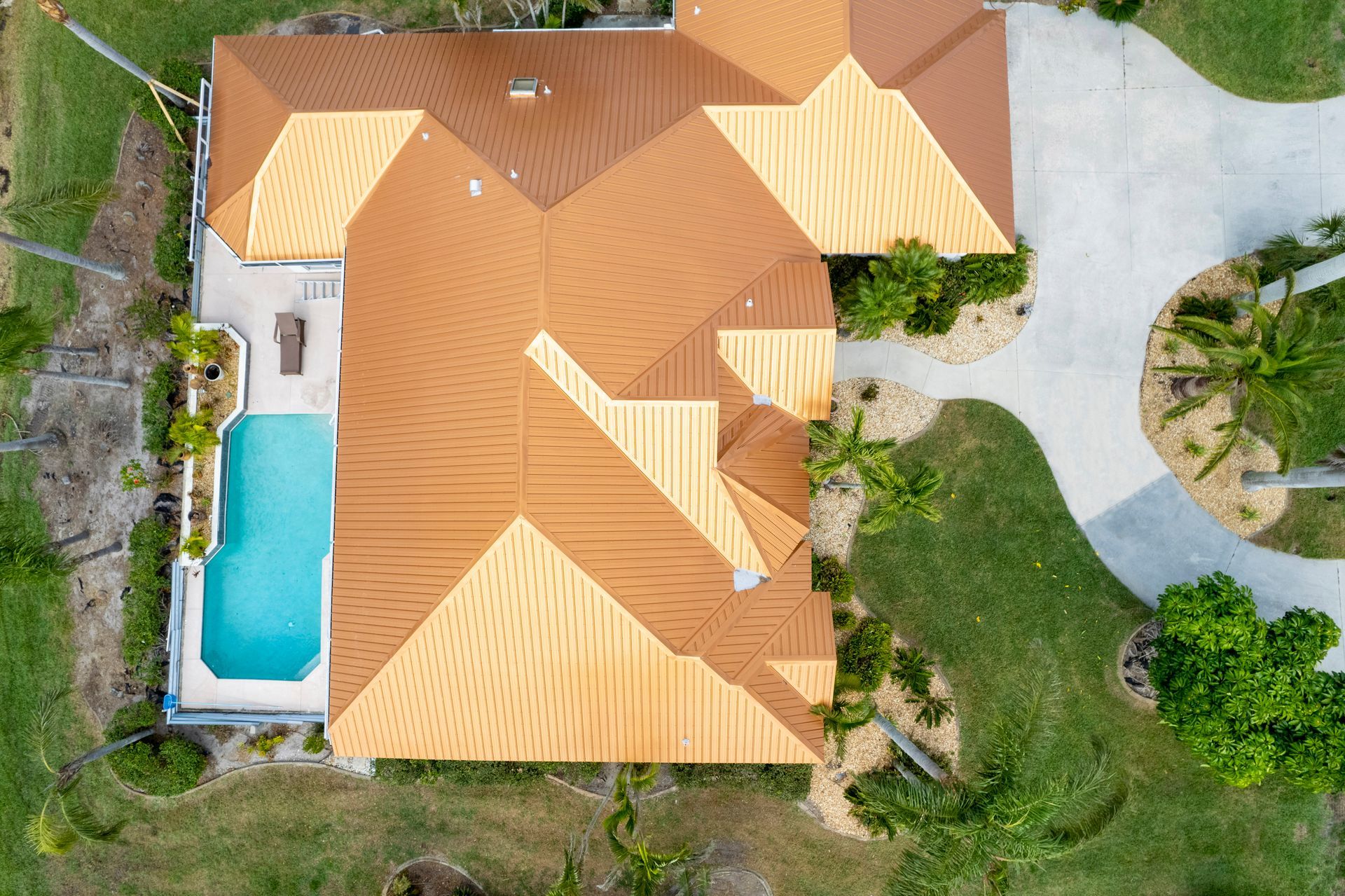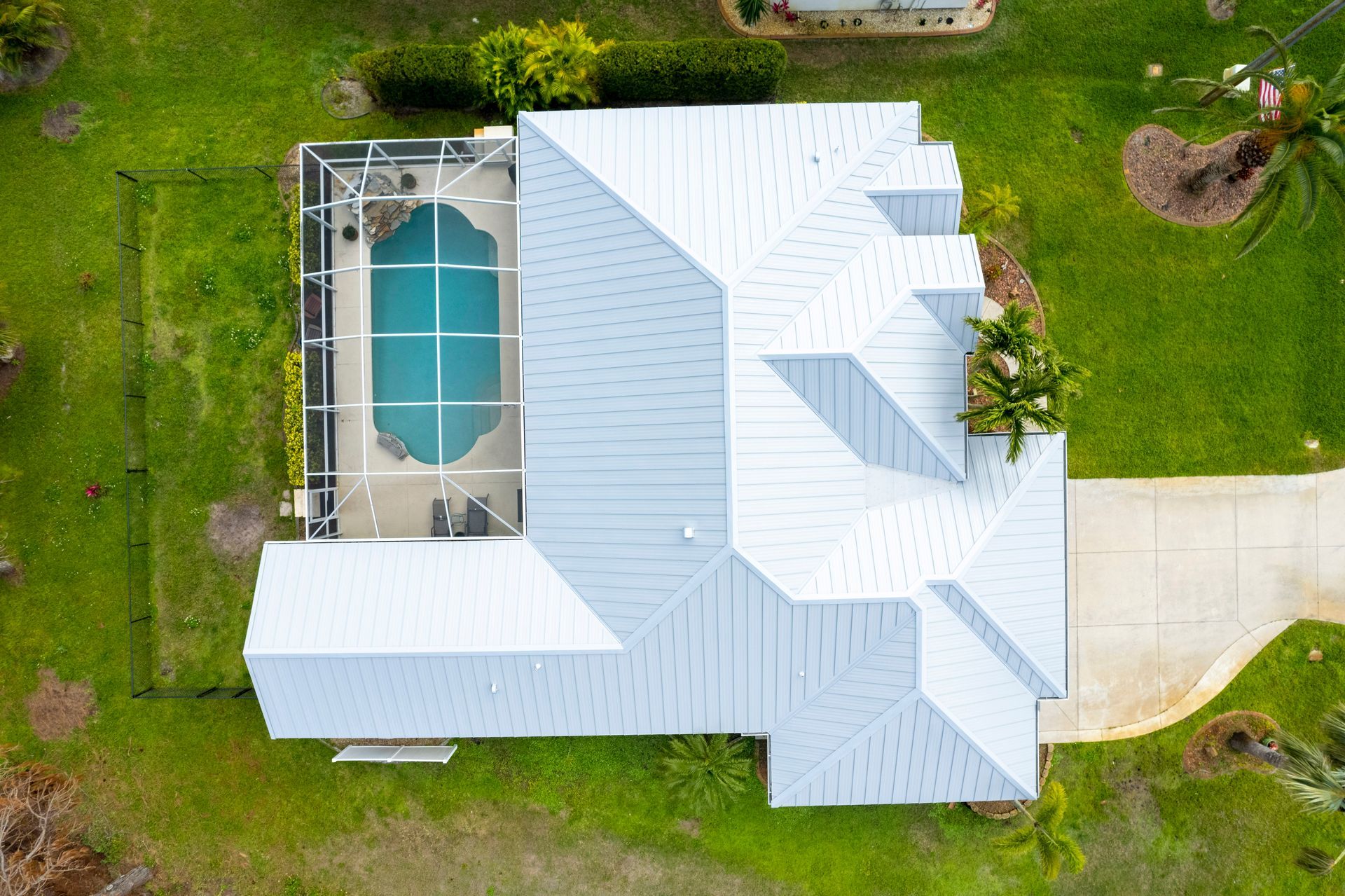How Much Does a Tile Roof Cost in Sarasota?
Understanding Tile Roofing in Sarasota
Tile roofing is a popular choice for homeowners in Sarasota due to its combination of durability, weather resistance, and aesthetic appeal. These roofs are designed to withstand the harsh Florida climate, including intense sun, heavy rain, and hurricane-force winds. Their longevity and ability to maintain their beauty over decades make them a smart investment for Sarasota homes. Plus, tile roofs add a touch of elegance that enhances curb appeal, making them a favorite among homeowners who value both function and style.
When it comes to materials, there are several types of tiles commonly used in Sarasota. Clay tiles are known for their classic look and natural composition, while concrete tiles offer a more affordable yet durable alternative. Slate tiles, though less common due to their higher cost, provide unmatched luxury and longevity. Each material has its own unique benefits, which can influence both cost and performance. Understanding these options is the first step toward making an informed decision about your roofing project.
Average Cost Range for Tile Roofing in Sarasota
The cost of installing a tile roof in Sarasota can vary significantly, typically ranging from $10,800 for smaller homes with basic materials to as much as $40,000 for larger properties with premium options. This wide range reflects differences in house size, roof complexity, and the type of tile selected. For example, a modest home with concrete tiles will generally fall on the lower end of the spectrum, while a large estate with custom clay or slate tiles could easily reach the upper limit.
Several factors contribute to this broad cost range. Labor expenses play a major role, as tile roofing requires skilled professionals to ensure proper installation. Additionally, the scale of the project, the specific tile material chosen, and any extra features like custom designs or intricate roof shapes can all impact the final price. Homeowners should consider these variables when planning their budget to avoid unexpected expenses.
Tile Roof Cost by Material: Clay vs. Concrete vs. Slate
The cost of tile roofing varies depending on the material. Clay tiles typically cost between $7 and $10 per square foot for the material alone, with installation bringing the total to $12–$21 per square foot. Concrete tiles are more budget-friendly, ranging from $5 to $8 per square foot for materials and $10–$19 per square foot installed. Slate tiles, on the other hand, are often the most expensive option, with prices significantly higher due to their premium nature and labor-intensive installation process.
Beyond cost, each material offers distinct performance characteristics. Clay tiles are prized for their longevity and resistance to fire and insects , often lasting 50 years or more. Concrete tiles are similarly durable but tend to be heavier, requiring a sturdy roof structure. Slate tiles are renowned for their luxurious appearance and exceptional lifespan, sometimes exceeding 100 years with proper care. However, their weight and cost make them less common in Sarasota.
For an average-sized Sarasota roof, homeowners can expect to pay between $15,000 and $30,000 for clay tiles, $12,000 to $25,000 for concrete tiles, and upwards of $40,000 for slate. These estimates include both materials and installation, ensuring a comprehensive understanding of what to anticipate when budgeting for a tile roof. Choosing the right material depends on your priorities, whether they lean toward cost, aesthetics, or longevity.
Main Factors Influencing Tile Roof Costs in Sarasota
Several key factors influence the overall cost of a tile roof in Sarasota. The size of the roof is one of the most significant determinants, as larger roofs require more materials and labor. The complexity of the roof’s design, including its shape and pitch, also plays a role. Steeper roofs or those with multiple angles and valleys are more challenging to install, driving up labor costs. Additionally, the choice of tile material—whether clay, concrete, or slate—directly impacts the price.
Other considerations include the removal of an old roof , any necessary repairs to the underlying structure , and custom design elements. Structural upgrades may be required to support heavier materials like clay or slate, adding to the expense. Permit fees and inspections are additional costs that can vary based on local regulations. By accounting for these factors early in the planning process, homeowners can better manage their budget and avoid surprises.
Labor, Materials, and Other Expenses Breakdown
Labor costs are a significant portion of the total expense for a tile roof, typically ranging from $700 to $1,200 per 100 square feet. This includes tasks such as removing the old roof, installing underlayment, placing the tiles, adding vents, and cleaning up the site. Skilled labor is essential for ensuring the roof is installed correctly, as improper installation can lead to leaks, damage, and reduced lifespan. Labor often accounts for about 50–60% of the total project cost, highlighting its importance in the overall equation.
In addition to labor, homeowners should budget for other expenses such as structural assessments, material delivery, disposal fees, and equipment rentals. Permits and inspection fees are also necessary to comply with local building codes. These costs can add up quickly, so it’s important to factor them into your budget from the start. Working with a reputable contractor like All Weather Tite (https://www.allweathertite.com) can help ensure transparency and accuracy in estimating these expenses.
Tile Roof Installation Process in Sarasota
The installation of a tile roof in Sarasota involves several key steps, starting with a thorough inspection of the existing roof. If a tear-off is required, the old roofing material is removed, and any damaged areas are repaired. Next, a waterproof underlayment is installed to protect against moisture infiltration. The tiles are then carefully placed, starting from the edges and working upward to ensure proper alignment and drainage. Finally, the project concludes with a cleanup and final inspection to ensure everything meets local building codes.
Installing a tile roof is a complex process that demands specialized skills and experience. The weight of the tiles and the precision required for placement mean that only qualified professionals should handle the job. This complexity is one reason why labor costs can be higher for tile roofs compared to other materials. Partnering with a trusted contractor ensures the work is done correctly, maximizing the roof’s performance and longevity.
Lifespan, Maintenance, and Cost Value of Tile Roofs
One of the standout features of tile roofs is their impressive lifespan. With proper installation and routine maintenance , clay and concrete tile roofs can last 30–50 years or more, while slate roofs can endure for over a century. This longevity makes them a worthwhile investment, as they outlast many other roofing materials. Regular upkeep, such as inspecting for cracked or broken tiles and ensuring proper drainage, helps extend their life even further.
Maintenance costs for tile roofs are relatively low compared to their lifespan. Minor repairs, such as replacing damaged tiles, are typically inexpensive and infrequent. While the upfront cost of a tile roof may be higher than other options, its durability and minimal long-term expenses justify the initial investment. Homeowners in Sarasota can enjoy peace of mind knowing their roof will withstand the test of time while enhancing their property’s value.
Cost Comparison: Tile vs. Other Roofing Materials in Sarasota
When comparing tile roofing to other materials like asphalt shingles, metal, and wood shakes, the initial cost difference is noticeable. Asphalt shingles are the most affordable option, with installation costs often ranging from $3 to $5 per square foot. Metal roofs fall in the middle, costing around $5 to $14 per square foot installed, while tile roofs are on the higher end due to their premium materials and labor-intensive installation. However, tile roofs offer superior durability and longevity, making them more cost-effective over time.
Tiles are also more resistant to fire, wind, and pests, reducing the likelihood of costly repairs or replacements. Additionally, some insurance companies offer discounts for homes with tile roofs due to their resilience. While the upfront investment may be higher, the long-term savings and added value make tile roofing a smart choice for Sarasota homeowners seeking a balance of aesthetics, performance, and financial prudence.
Potential Savings and Financing Options
Homeowners in Sarasota exploring tile roofing projects may find opportunities for savings through rebates, insurance discounts, and financing options. Some local utility companies offer incentives for energy-efficient roofing choices , while certain homeowner’s insurance policies provide discounts for durable materials like tile. Financing plans, including loans or payment programs, can help spread the cost over time, making it easier to manage the investment. Exploring these options can make a tile roof more accessible without compromising quality.
Choosing a Sarasota Roofing Contractor
Selecting the right roofing contractor is crucial for ensuring a successful tile roof installation. Look for licensed professionals with extensive experience in tile roofing, as well as strong reviews and testimonials from previous clients. Insurance coverage is another critical factor, protecting both the contractor and the homeowner in case of accidents. Local expertise is also valuable, as contractors familiar with Sarasota’s climate and building codes can provide tailored solutions that meet your needs.
To ensure you’re getting the best value, request detailed written estimates from multiple contractors and compare their offerings. Don’t hesitate to ask for references or examples of past projects. A reputable contractor like All Weather Tite (https://www.allweathertite.com) can guide you through the process, offering transparent pricing and expert advice to help you make an informed decision.
Common Pitfalls and How to Avoid Unexpected Costs
Hidden expenses can arise during a tile roof installation if proper precautions aren’t taken. Structural upgrades may be needed to support heavier materials, and permit issues can delay the project. Poor preparation, such as failing to address underlying roof damage, can lead to costly repairs later. To minimize surprises, work with a qualified contractor who conducts a thorough assessment and provides a detailed estimate. Clear communication and upfront planning are key to staying within budget.
How to Get an Accurate Estimate for Your Home
Obtaining an accurate estimate for your tile roof requires a personalized, on-site assessment. A professional contractor will evaluate your roof’s size, condition, and complexity, as well as discuss your material preferences. This hands-on approach ensures the quote reflects the true scope of the project, helping you plan and budget effectively. Skipping this step can result in inaccurate estimates and unexpected costs down the line.
FAQs About Tile Roof Costs in Sarasota
How much does it cost to install a tile roof per square foot in Sarasota?
In Sarasota, the cost to install a tile roof ranges from $10 to $21 per square foot, depending on the material. Clay tiles typically fall on the higher end, while concrete tiles are more affordable. These prices include both materials and labor, providing a comprehensive view of what to expect when budgeting for your project.
Is a tile roof more expensive than asphalt shingles in Sarasota?
Yes, tile roofs are generally more expensive upfront than asphalt shingles, which cost around $3–$5 per square foot installed. However, tile roofs offer superior durability and longevity, often lasting decades longer than asphalt. This makes them a more cost-effective choice over time , especially when considering reduced maintenance and potential insurance savings.
How long should a Sarasota tile roof last?
A well-installed tile roof in Sarasota can last 30–50 years or more, with clay and concrete tiles being particularly resilient. Proper maintenance, such as regular inspections and repairs, can extend their lifespan even further. Factors like weather exposure and installation quality also play a role in determining how long your roof will endure.
Does tile type affect insurance rates in Sarasota?
Yes, choosing durable materials like clay or concrete tiles can lead to lower homeowner’s insurance premiums in Sarasota. These materials are highly resistant to fire, wind, and impact, reducing the risk of damage and claims. Be sure to consult your insurance provider to understand how your choice of roofing material might affect your policy.
Are permits required for a tile roof replacement in Sarasota?
Yes, permits are required for tile roof replacements in Sarasota to ensure compliance with local building codes. The responsibility for obtaining permits usually falls on the contractor, but homeowners should confirm this during the planning process. Proper permitting helps avoid legal issues and ensures the project meets safety standards.
Conclusion
Understanding the full cost spectrum of a tile roof in Sarasota is essential for making an informed decision. Factors like material choice, roof size, and installation complexity all play a role in determining the final price. By weighing these elements and considering long-term benefits such as durability and curb appeal, homeowners can confidently invest in a roofing solution that meets their needs. Remember, the right choice not only protects your home but also enhances its value.
To ensure the best outcome for your project, seek multiple detailed estimates from licensed professionals in Sarasota. Their expertise will help you navigate the complexities of tile roofing and provide personalized guidance tailored to your home. For more information or to schedule a consultation, visit https://www.allweathertite.com and take the first step toward transforming your roof into a lasting asset.
Have any questionS?
Reach out to our roofing specialists for more answers on the various options for your home.



